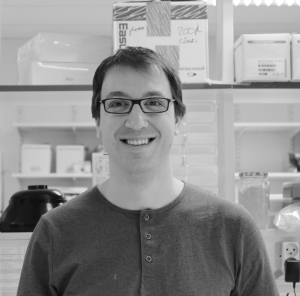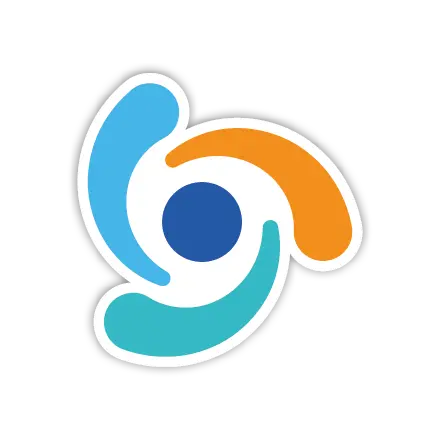What is a Connect Talent?
« The Connect Talent initiative of the Pays de la Loire region aims to support the installation and establishment of internationally renowned scientific leaders, who are the bearers of groundbreaking projects whose objective is to take up the major scientific or technological challenges of our time and whose societal and economic impact is undeniable.» Website of the Pays de la Loire Region
The Connect Talent obtained by Eric Letouzé has enabled him to work at the Nantes-Angers Cancer Research Centre (CRCINA) in September 2021, joining Stéphane Minvielle‘s team. Dedicated to the integrated genomic analysis of cancers, this team is attached to the PISTER programme of the SIRIC ILIAD. Eric Letouzé’s arrival aims to develop a new research activity in a cutting-edge field.
Why Eric Letouzé?

With more than 10 years of experience in the study of solid cancer genomes, Eric Letouzé has gained a great deal of expertise in the field, notably by becoming director of research. However, Eric Letouzé is not a researcher in a white coat as one might expect. His expertise in genomics was forged through his skills in bioinformatics and this dual competence is at the heart of the project.
« On a day-to-day basis, I do not carry out experiments in the laboratory, but I analyse and interpret biological data using statistics and informatics. » Eric Letouzé
Eric Letouzé began his career with a doctorate at the Institut Curie on bladder cancer and thus participated in the beginnings of genomic studies with the arrival of DNA chips1.
2006-2010: PhD thesis on “Bioinformatic analysis of bladder cancer progression pathways” under the supervision of Frédéric Guyon, University of Paris VII
Next, he did his post-doctorate at the Ligue contre le Cancer, where he studied the genomes of a hundred different types of tumors as part of the “Cartes d’Identité des Tumeurs (CIT)” project, which aims to refine the molecular knowledge of multiple types of tumors in order to improve or develop targeted therapeutic approaches.
2010-2014: Post-doctoral researcher, Ligue contre le cancer comité départemental de Paris
Finally, with Professor Jessica Zucman-Rossi, he became head of the “Computational Cancer Genome Analysis” project at the Centre de Recherche des Cordeliers, where he worked for six years on liver cancers.
Beyond this rich career, Eric Letouzé is also involved as co-founder and manager of “GeCo”, an advanced genomics consulting service that helps researchers and biotech and pharmaceutical companies to make sense of their genomic data; and as head of the “Cancer Genomics” research chair, which aims to use bioinformatics approaches to identify the genomic alterations responsible for cancer.
2015-Present: Co-founder of GeCo (advanced genomic consulting service)
2019-Present: Head of the research chair “Cancer Genomics”, PRAIRIE (PaRis Artificial Intelligence Research InstitutE)
Connect Talent Project: CANCERGEN
« The objective of the project is to develop innovative computational approaches, integrating methods from other scientific disciplines (artificial intelligence, DNA biophysics, mathematical modelling) to overcome the limitations of classical bioinformatics approaches and answer key questions in cancer genomics. » Connect Talent Projet
Eric’s Connect Talent project “Cancergen” is dedicated to multiple myeloma. This bone marrow cancer has a great molecular diversity, so each tumour is different and will respond more or less well to the available treatments. His research aims to better understand the tumour cell and its resistance to treatment.
« The aim is to understand which treatment is most appropriate for a given person, by finely characterising the genome and epigenome2 of the tumour throughout the treatment process, from diagnosis to relapse, before and after treatment. » Eric Letouzé
He will not be carrying out this work alone, but in close collaboration with Professors Philippe Moreau and Cyrille Touzeau from the haematology department of the Nantes University Hospital, in order to carry out a research project integrating both clinical and biological data.
« At the Nantes site, there is a strong connection with the clinic and good interaction with clinicians, which can have a very rapid clinical impact. » Eric Letouzé
Currently, genome sequencing techniques are used in clinical routine for monitoring patients in order to assess molecular alterations and thus the severity of the disease. However, they do not provide the same level of accuracy as the techniques used in research. Thus, one of the objectives of this work is to transfer the techniques used in research to health establishments, to obtain a fine characterisation of the tumour as soon as it is diagnosed and thus prescribe the most appropriate treatment.
Structuring as a final project objective
Bioinformatics is currently a rapidly expanding field. Biology researchers are generating more and more data, especially genomic data linked to DNA sequencing of tumour cells. To analyse this data and give it biological meaning, research teams need professionals who are ‘doubly’ competent in both biology and computer science.
« The increase in the amount of data generated has led to a growing need for bioinformatics throughout France in research teams, but also in clinical departments, which also carry out sequencing. » Eric Letouzé
Unfortunately, these profiles are becoming rare today. The final objective of Eric Letouzé’s project is to structure bioinformatics locally to meet the needs of the Nantes scientific community.
1 : DNA chips can be used to measure and/or detect RNA. Since they can estimate the expression of tens of thousands of genes in a single experiment, microarrays have contributed to the genomics revolution.
2 : The epigenome is the set of epigenetic modifications of a cell, i. e. the modifications that regulate the expression of genes, which can be transmitted by cell division, but which are not carried by the DNA sequence itself.

